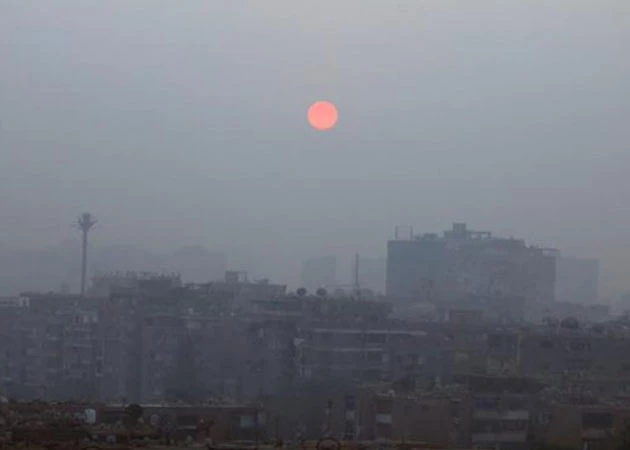Initiative supports development
The International Energy Agency (IEA) recently released a report stating that about one billion African people still use firewood, charcoal, and other primitive fuels for cooking. Globally, this figure is up to two billion people. This reality threatens public health and causes serious air pollution.
 |
| Pollution smog covers the sky in Cairo, Egypt on January 8, 2022. (Photo: Xinhua/VNA) |
According to IEA Executive Director Fatih Birol, about four-fifths of African households still cook using traditional methods such as burning wood, charcoal, animal dung, or agricultural waste. This is one of the greatest injustices of our time, particularly affecting women and children in Africa, as manual burning releases fine dust that causes air pollution and can penetrate deep into the lungs, causing a range of respiratory and cardiovascular diseases.
The habit of using wood-burning stoves for cooking also accelerates deforestation, undermining natural CO₂ “sinks” that play a critical role in combating climate change. The IEA estimates that each year, approximately 815,000 premature deaths in Africa are due to indoor air pollution, mostly from unsafe cooking methods. Additionally, millions of women and children spend hours daily collecting and burning fuel, reducing time for education and income-generating labour.
At a summit convened by the IEA in Paris (France) in May 2024, the international community pledged to mobilise 2.2 billion USD from both public and private sectors to address this issue. In addition, 12 African countries also agreed on a political commitment. Since then, 470 million USD has been allocated, and several concrete achievements have been recorded. These include a clean, environmentally friendly stove manufacturing factory being built in Malawi and a low-cost stove distribution programme being implemented in Uganda and Côte d’Ivoire.
Since 2010, about 1.5 billion people in Asia and Latin America, especially in Brazil, India, and Indonesia, have gained access to modern cooking stoves and fuels. However, the challenge remains immense for Sub-Saharan Africa, where the number of people without access to clean cooking methods continues to rise.
The IEA has proposed feasible solutions to ensure universal access to clean cooking methods in Africa by 2040. According to IEA Executive Director Fatih Birol, investing just around two billion USD per year (about 0.1% of total global energy investment), the whole of Africa can achieve the target of clean cooking method access by 2040.
Feasible solutions include using electricity generated from solar energy or liquefied petroleum gas (LPG). Although LPG is not considered an ideal solution, it is considered a more suitable option than continuing lumber for firewood. The IEA also recommends that countries should implement financial policies to help households access clean cooking equipment and encourage the private sector’s investment.
If it is fully implemented, this energy transition initiative could prevent 4.7 million premature deaths in Sub-Saharan Africa from now to 2040 and reduce 540 million tonnes of CO₂ per year, equivalent to the entire global aviation sector’s carbon emissions.
It is necessary to have an active involvement of the global community to promote this energy transition initiative as well as other development support initiatives for poor and underdeveloped regions. Poverty and conflict in disadvantaged areas have led to cascading problems such as epidemics, environmental pollution, and waves of refugees and migrants are spreading and becoming global challenges.
NDO





READER COMMENTS